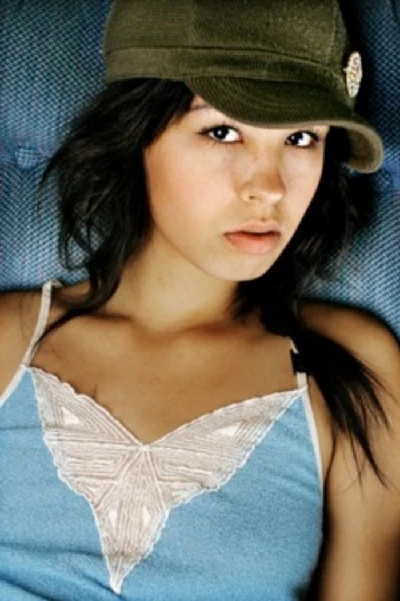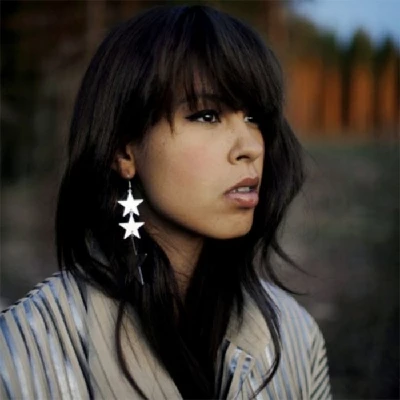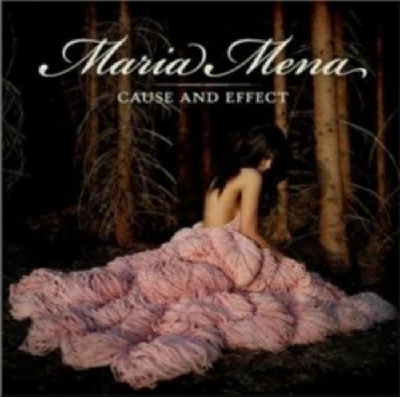published: 29 /
7 /
2010

Norwegian singer-songwriter and one-time teenage star Maria Mena speaks to Lisa Torem about her fourth studio album, 'Cause and Effect'
Article
Singer-songwriter Maria Mena and her brother Tony were named after the central characters of the American musical ‘West Side Story’. Perhaps this decision foreshadowed the series of dramatic events which followed and led to Mena’s own personal discoveries.
Mena’s mother was Norwegian and her father was Nicaraguan. Her father, a musician, had contacts in the music industry, and, although at the age of nine her parents separated, those allegiances proved vital.
Although Mena experienced eating disorders, as a result of her parent’s separation, her desire to perform and write music allowed her to exercise artistic fluidity. After moving in with her dad, at the age of thirteen, she wrote ‘My Lullaby’ which eventually became her second single, created her first demo and landed, with her father’s perseverance, a deal with Norway’s branch of Sony Records.
Her 2002 debut single, ‘Fragile (Free)', alerted Norwegian fans to her talent. Her debut album of that year, ‘Another Place’, reached number 6 on the Norwegian Albums Chart.
In 2005, her album, ‘Apparently Unaffected’, outsold in Norway works by Pink, Nelly Furtado and Beyonce Knowles. A YouTube single from that work, ‘Just Hold Me’, shows a vulnerable Maria Mena facing off a distant lover; her visceral reaction to his rejecting stance is impenetrable.
‘All This Time’ was produced in 2008. Mena displays an impish grin and a flair for fantasy in the video footage for this single coupled with a no-holds-barred exuberance for romance.
Her latest album, ‘Cause and Effect’, is as honest as it is cunning, as coarse as it is subtle and as flippant as it is frank. Mena’s voice throughout is expressive and versatile, yet engagingly direct. And, although the album boasts a diversity of styles, Mena’s poignant, heartfelt interpretations drive the emotions home consistently.
Maria Mena talking to Pennyblackmusic discusses ‘Cause and Effect’, other original tunes and what motivates her to perform and create.
PB: ‘Cause and Effect’ touches on deeply personal themes. ‘Apparently Unaffected’ and’ Another Place’, your earlier albums, offered a variety of musical styles, but seemed more abstract. Can you explain why?
MM: ‘Cause and Effect’ is the first album I´ve written where I had a clear idea of what I wanted it to be about from the very beginning. Usually, I just write my way through my life, as I live it, but I wanted ‘Cause and Effect’ to be about my childhood. I felt like I had unresolved issues.
I don´t really know why the other albums sound different to you. Maybe it´s just because my taste in music was different back then. I don´t ever think of what I want an album to sound like. I just dress each individual song in what it "looks" best in.
PB: In ‘Eyesore’ on 'Cause and Effect' you exclaim, “Eyesore, that’s me.” There’s a trail of other self-deprecating comments on many of your songs. Was this a study in self-esteem and is there an element that is, to a degree, making light of yourself a little bit as well?
MM: That song is about my struggle with anorexia. I wanted it to reflect my darkest moments. There’s not a lot of humour in that song, but I didn´t want there to be. I wanted it to be dark.
You see, I mostly write after I´ve gained several different perspectives on an issue. I feel like, if you write a song about being sad without trying to figure out why you´re sad, it sounds uneducated, but I felt like I needed to go back to my darkest moments and write about what it felt like to be in the middle of it all, so that´s what I did on 'Eyesore'.
PB: ‘My Lullaby’ is about your reaction to your parents’ divorce. Did this song create a dialogue between you and your parents?
MM: We don´t talk about my lyrics ever and I´m really grateful for that. I don´t want to think about how what I write might affect anyone when I write. I don´t want to start editing myself.
PB: You urged your father to take your demo of ‘My Lullaby’ to labels. At that time, were you expecting artistic validation or to simply express your feelings to your father?
MM: My father went around shopping for managers for me on his own. I didn´t really know what was going on. I was 14 and in school. I don´t think we knew how big it was all going to get.
Writing songs has never been my way of trying to communicate with other people. I´ve always been good at talking about problems. Writing is my way of talking to myself, understanding myself and why I react or feel the way I feel; like peeling off layers to get to the core of an issue. I love having those moments to myself.
PB: In ‘Ugly’ from 'Another Phase' you sing, “Which magazine did you read so you can judge me now?” This question really underscores how the media creates images that young girls feel they must live up to. Did you feel pressured in that way growing up?
MM: I wrote that song in the beginning of my teen years. I realized that I was not considered "beautiful" (or so I thought). I didn´t look like the girls in the magazines and I went from being a cute child to being an awkward young woman. I remember being really angry about the fact that I was different. Today I embrace that.
PB: Who were your early musical influences and what was the music scene like in Norway when you first started performing?
MM: I heard Alanis Morisette when I was thirteen for the first time. I remember thinking that I wanted to be as brave as she was when it came to writing songs. The music scene in Norway was not huge when I started. It´s a lot better now.
PB: In 'Dear’ from 'Cause and Effect' you sing,“We were never meant to be lovers/We just mirrored each other’s self-destructiveness.” Then on ‘I’m in Love’ you capture a much lighter feeling. Which describes your current views on romantic love?
MM: None of them. I´m figuring love out as I go.
PB: How important is it to you to communicate with young people who struggle with issues such as: eating disorders, poor self-esteem, depression and abandonment? Do you feel that once you broach these topics you have a responsibility to act as a spokesperson?
MM: I don´t feel a responsibility at all and I don´t think I should. I think that would affect my songwriting. I write solely for myself. If people can relate to the lyrics and find comfort in them, that´s a huge bonus, but I wouldn´t want to feel the pressure of having to be a role model or spokesperson. I wouldn´t be a very good one. I’m still on the middle of it all.
PB: How do you feel the British and American music scene differs from what you’ve experienced in Norway?
MM: I have no idea! I need to experience the music scene in England, first. Ask me again later.
PB: What lies ahead in terms of recording, songwriting and touring?
MM: I´m writing an album now. It´ll probably be out in 2011. We´re working on setting up a small tour in Britain, so if you want to stay updated on that, I suggest you follow me on Twitter at twitter.com/mariamenamusic or see my blog at mariamenamusic.blogg.no.
PB: Thank you, Maria.
Picture Gallery:-



